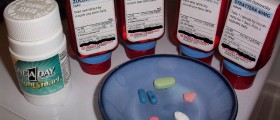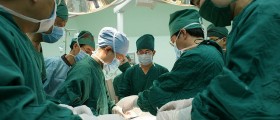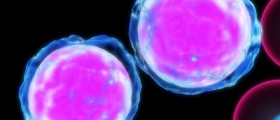
Heart transplant is a surgical transplant procedure performed on patients with end-stage heart failure or severe coronary artery disease. The most common procedure is to take a working heart from a recently deceased organ donor and implant it into the patient. The patient's own heart may either be removed or, less commonly, left in to support the donor heart.
After the transplant, some complications may occur, but it mainly depends on the individual. Usually doctors do blood and other tests to see if one’s at risk of a certain complication.
Risks and complications
Infection.Not uncommon, while immunosuppressant medicine has been known to, in some cases, elevate chances of infections. As the dose of the medicine decreases, so will the threat of infection. This complication is completely treatable, but one must bear in mind new symptoms that may appear, such as fever, or any strange pain.
Rejection.The only, and sometimes, the best way to diagnose rejection is through biopsy. This is done often during the first year after a transplant, but lessens in frequency over time. However, the risk never completely disappears, and antirejection medicine needs to be taken always, and while it may be decreased in dosage, one should never go off these medications.
Cancer.One of the dangers of antirejection medicine is that it may cause cancer. That does not, however, happen often, but there is a certain risk. The most common types of cancer caused this way are skin and blood cancer. Sometimes, the problem disappears when the dosage is lessened.
High cholesterol.Immunosuppressant medicine may cause an increase in the levels of cholesterol in one’s blood. However, this is treatable, and a doctor may prescribe one medication to deal with this problem.
High blood pressure.It is one of the main causes of heart diseases, which may lead to one’s heart being in need of a transplant. With the transplant, the risk of having high blood pressure does not go away. It can damage one’s kidneys or cause a stroke. So the treatment is very significant after a transplant.
Kidney disease.Some of the medication prescribed after the transplant may harm one’s kidneys. This usually happens when the dosage of the medicine is very high. Doctors will try to avoid this from happening, but, sometimes, that is difficult to do. Kidney disease may cause a feeling of tiredness, fluid retention, or swelling in one’s feet. Which is why one should have regular blood tests, in order to prevent these complications.
Diabetes Mellitus.Immunosuppressant medicine may cause diabetes. For those who had already had diabetes before the transplant, checking the blood sugar levels may be more difficult, so more attention must be paid to that.
Reappearance of heart disease.Which is uncommon, but may happen. Doctors will check for this regularly.
Cataracts.Prednisone may increase the possibility of one getting cataracts. Although in cannot be prevented, there is a surgical solution.
Osteoporosis.May be caused by some medication prescribed. Doctors may conduct bone density tests to spot this problem.

















Your thoughts on this
Loading...